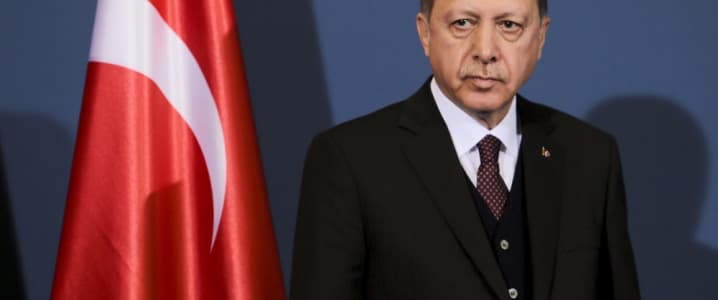Turkey’s geography has been a blessing to the country’s strategic value. After the Second World War, the U.S. moved quickly to include Ankara in the new Trans-Atlantic alliance. However, tensions between Turkey and its Western allies have damaged the relations between the partners and could end up changing the geopolitical landscape. Recently, Ankara has again caused controversy and unrest by engaging in drilling activities in Cyprus’ EEZ. Turkey risks being isolated from its most important economic and military partners in the West due to its confrontational policies.
A Mediterranean El Dorado
In the meantime, Egypt and Israel have made significant progress regarding production at the recently discovered gas fields in their EEZ. Cairo already housed two liquefaction facilities at Idku and Damietta, which were constructed during the previous gas boom but were mothballed at the beginning of this decade when domestic consumption and quicker than expected depletion evaporated export dreams. Israel was also quick to take advantage of the discoveries meaning that production has already started. The Jewish state stands to benefit from energy independence due to its isolated and precarious situation in the Middle East.
Redrawing geopolitics
Before Turkey’s recent moves concerning gas exploration activities in the Eastern Mediterranean, the geopolitical landscape was already transforming. The enormous financial benefits of exporting surplus natural gas is an essential reason for collaboration between the littoral states of the Mediterranean who usually aren’t very friendly to each other. For example, several companies struck an agreement to send Israeli gas through existing pipelines to Egypt’s LNG facilities for export purposes.
Cooperation between Greece, Cyprus, and Israel is particularly peculiar as these countries have struck preliminary agreements for economic and political cooperation, which is a threat to Turkey’s interests. Ankara maintains that the Turkish inhabitants of the island should also benefit from gas exports, while the political standoff between internationally recognized Cyprus and the Ankara-recognized Turkish Republic of Northern Cyprus make it unlikely.
Turkey’s recent decisions concerning political collaboration with Russia and Iran on Syria and military cooperation with Moscow create additional hurdles for the country’s relationship with Western partners. Ankara has moved forward with the purchase of Russia’s advanced S-400 surface-to-air missile system, despite Washington’s warnings.
The apparent incompatibility of the air defence system with the F-35 fighter jet, for which Ankara is an important customer and development partner, has prompted the U.S. to exclude Turkey from the program and cancel the delivery of 100 aircraft. The course of actions during this episode doesn’t bode well for cooperation in other areas such as compromises in energy politics and development.
Europe’s last warning
Despite multiple warnings and calls for negotiations, Turkey recently decided to send a second exploratory ship to start drilling in Cyprus’ international recognized EEZ. Ankara maintains that these areas are part of its continental shelf while Brussels firmly supports EU member state Cyprus’ claim
The EU has responded by taking punitive measures against Ankara, which include suspension of high-level diplomatic talks and negotiations on the comprehensive air transport agreement, and the reduction of pre-EU accession financial aid for Turkey in 2020. Also, €434 million in loans by the European Investment Bank are under review.
Despite the relatively mild measures, the sanctions create an adverse investment climate which could deter companies from doing business. Turkish companies could also find it more difficult to find Western energy companies willing to contribute technologically into possible gas discoveries.
However, the most devasting blow could be the fallout effect on Turkey’s plans to become an energy hub. Ankara has not made it a secret that it would like to serve as a hub for Caspian and Middle Eastern energy to flow to Europe. If Turkey remains on its confrontational path, the EU could conclude that the country is not the right candidate to serve as a conduit of critical resources to Europe’s borders.
By Vanand Meliksetian for Oilprice.com
oilprice.com/Energy/Energy-General/Turkey-Pushes-Regional-Tensions-To-Breaking-Point.html#




